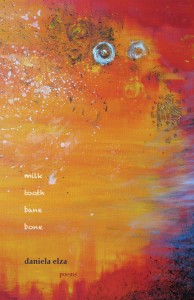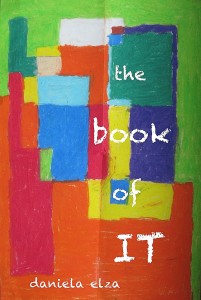between a rock and a hard place there is still light
Posted by Daniela Elza on Oct 01 2008
A meditation on Negotiating with the Dead, by Margaret Atwood
The writing occupation (or shall I say pre-occupation) is multifaceted. On the one hand we emerge through it: a flower working its way to bloom and seed. On the other hand we are socialized into it: stand at the mercy of inherited beliefs, understandings, stereotypes, prejudices, and opinions, which form the environment that affects the growth of this flower. We cannot remain oblivious: it is revealed and imposed through others’ treatment of the writer/creator. Yet, if we end up paying too much attention to this environment we may end up crippled, hurt, stunted. We may form impressions, models, habits that are destructive to the writing task ahead of us.
Atwood gracefully delves into the nature of this preoccupation with writing, where it takes place, and its inheritance. I was stalked by the growing concern that something is out of whack. I appreciated Atwood’s sophisticated humour, honesty, and light touch. But there was also a resentment welling up in me. Is this a disease? For sure dis-ease gets me writing, but that is not the whole story. What about wonder? We need to talk of the joy, the sheer delight that comes with writing; with this kind of attention, seeing, playing, and dwelling with words. Enough with the dim and dismal pictures of the troubled writer; the poet as potential suicide. Even worse: “the mere act of writing splits the self in two?â€(p.32) Can we really distinguish between who does the living and who does the writing? I refuse to inherit such dicotomies. They are detritus left in the wake of what we have come to conceptualize as writing. Is this the writer’s fault? Could this be more a criticism of society: how it chews up its creative people and spits them out on the refuse heap? Then has the audacity to print their work for posterity: well, if they are lucky. This is hypocrisy. Maybe that is when they die a second time.
Atwood addresses awkward, uneasy spaces: the writer writing for money or writing for art, the role of the reader, the writer’s moral and social responsibility, the relevance to humanity, the writer between the inherited past and the difficulty of the present. Hence the title and the name of the last chapter: Negotiating with the Dead.
The conflicts and paradoxes are numerous, but I am also left with hope. That somewhere there is a way, one can negotiate a path where one can have the best of both worlds. Where one can remain whole. Maybe this difficulty in defining writing and writer should be seen as a blessing. A puzzlement that contains its own salvation.
Read the book. I recommend the negotiations start right away. Discard what is toxic: what does not serve you well in your pursuit. Embrace that which delights: brings joy and contentment to both you and your writing process. After all, that is what it is: a process of discovery, and an exhilarating one, at that. As Atwood aptly puts it: “Every life lived, is also an inner life, a life created.â€
Atwood, M. (2002). Negotiating with the dead: A writer on writing. Cambridge, UK: Cambridge University Press.





October 1st, 2008 at 10:19 pm
D,
What’s all this naval gazing about how one is split into the one who writes the one who lives?
When I am writing the world the world is writing me. I and the world are both object and subject: each other’s creatures and creators. It’s a circle.
When I am living I am the poem (of the poet who is playing hide and seek in me).
I think it was Blake who pronounces “Subject and object are one.”
Nothing is split anymore than the crest is split from the trough.
And if they are just remember good old Leonard Cohen:
“There is a crack in everything. That’s how the light gets in”
October 2nd, 2008 at 7:43 pm
Hi iDucktape,
YES, when i am writing the world is writing me.
The concern I have is that we are looking at writing through a little crack and only getting a very little bit of light. I am thinking that we we keep passing on this limited notion which limits writers.
thanks for your comments.
daniela